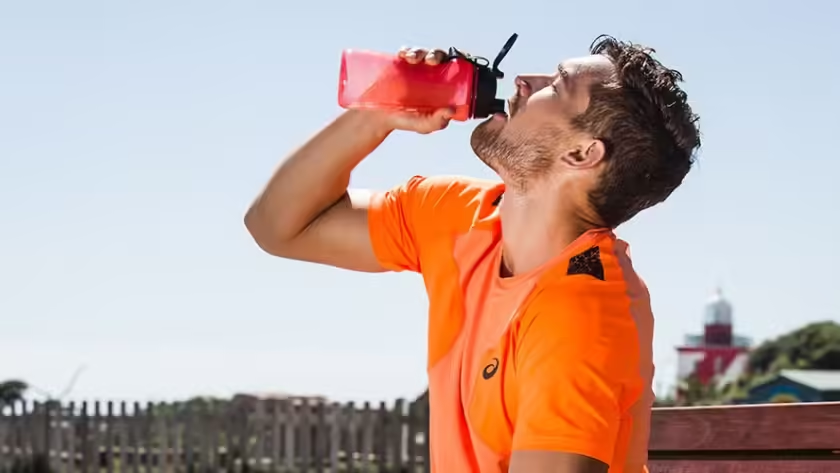Table of Contents
Key Takeaways:
- Drinking too much water:
- Can dilute electrolytes, especially sodium
- May lead to hyponatremia (low blood sodium)
- Proper amount varies based on individual factors
- Drinking water too quickly:
- Can disrupt sodium balance in the body
- May cause cell swelling
- Drink at a moderate pace
- Relying on the wrong fluids for hydration:
- Coffee, tea, alcohol, and soda are not ideal
- These can have diuretic effects
- Consider individual factors affecting hydration needs
- Drinking too much while eating:
- Can dilute gastric juices
- May lead to digestive issues like GERD
- Drink moderately with meals or before/after
- Drinking very cold water:
- May inhibit the vagus nerve
- Can slow digestion in some people
- Consider room temperature water if you have digestive issues
- Drinking unfiltered tap water:
- May contain harmful substances
- Potential contaminants include chlorine, fluoride, glyphosate
- Use a good water filter for safer drinking water
Additional Important Points:
- Balancing electrolytes (especially sodium and potassium) is crucial for proper hydration
- Hydration needs vary based on factors like climate, activity level, and diet
- The ketogenic diet can affect fluid balance in the body
- Most people are deficient in potassium rather than sodium
- For kidney stone prevention, drink at least 2.5 liters of fluid daily
So let’s dive into the details…
Drinking enough water is essential for our bodies to function properly, but are you doing it right? While it’s great that you’re making an effort to stay hydrated, there are some common mistakes that can negate the benefits of drinking water. From drinking too little to drinking at the wrong times, these mistakes can lead to dehydration, digestive issues, and even affect your weight loss goals. In this article, we’ll reveal the 6 most common mistakes people make when drinking water and provide you with practical tips on how to correct them and make the most out of your hydration routine
6 Common Mistakes While Drinking Water
Today we’re going to talk about the six mistakes that you could make drinking water. So let’s start with the first one:
Drinking Too Much Water: Hyponatremia Risk
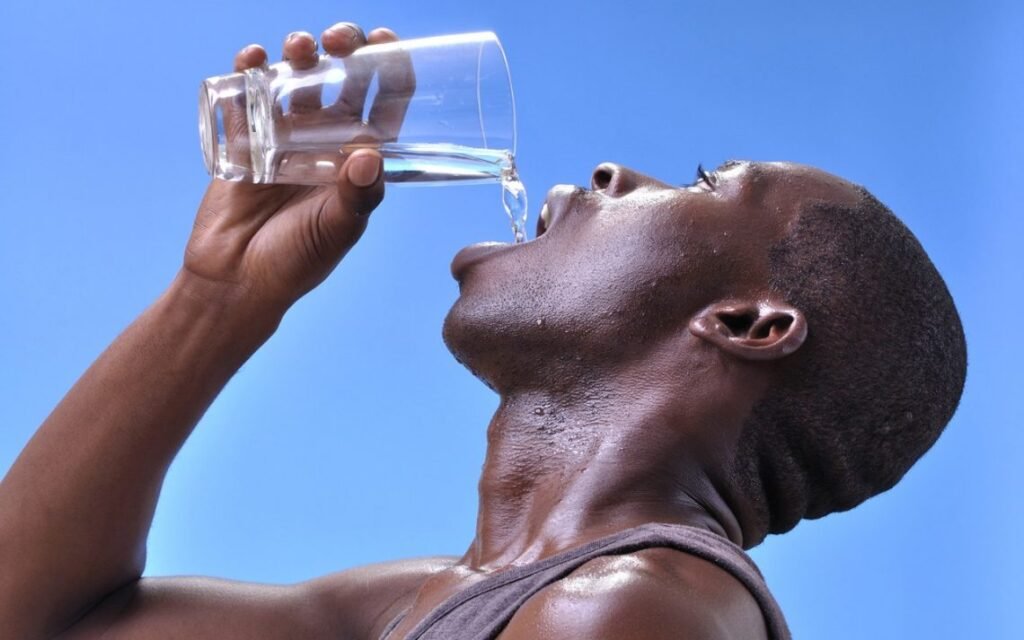
Drinking too much water. Now, is this possible? Yes, it is, especially when you force yourself to drink all this water, especially without the electrolytes that help you deal with this extra water.
And I know there’s a lot of gurus out there that say the most important thing you need to keep drinking, drinking, drinking a lot of water right, as that’s the absolute most important thing you can do.
You should drink a gallon of water a day. Well, that’s fine, but are you exercising? Are you sweating? Are you taking electrolytes? Are you taking enough sea salt?
What happens when you drink too much water? You can dilute electrolytes, specifically salt, and you can create a condition called hyponatremia, where there’s not enough sodium in your blood.
And that actually is a form of dehydration. So it is possible that drinking too much water can put you in a situation where you’re dehydrated.
The right amount of water
And I just want to make a point: I’m not against water. You just need to drink the right amount. Hopefully, you have the sensation of thirst that can tell you when you’re thirsty.

Now, on the flip side, if you are prone to kidney stones, you should be drinking at least two and a half liters of fluid a day because the kidney stone develops in a super-saturated concentration of urine.
So if you’re drinking enough water, um, it’s almost impossible to develop a stone. And so should we all drink exactly eight glasses of water a day?
It really depends on a lot of variables that I’m going to get into in this topic. So the point of number one is just to make sure you’re not forcing yourself to drink gallons of water because people have died from the condition called hyponatremia, and I will put that link down below.
- Drinking too much water, especially without electrolytes, can be dangerous.
- Excess water consumption can lead to hyponatremia, a condition caused by low sodium levels in the blood.
- Hyponatremia is a form of dehydration and can be fatal.
- Listen to your body and drink when you’re thirsty.
- People prone to kidney stones should drink at least 2.5 liters of fluid daily to prevent stone formation.
Drinking Water Too Quickly: Sodium Imbalance

All right, number two: drinking water too quickly. Now, this is not like a major point, it’s a minor point. But when you drink water too fast, sometimes the sodium in your blood doesn’t have a chance to help balance this fluid. And that’s one of sodium’s jobs is to help balance fluid inside and outside the cell.
And so when you’re forcing too quickly too much water in your body, that can actually create some swelling, especially if it’s a lot of water, because of what happens to sodium.
Sodium will start going into the cell too fast and you’ll be deficient outside the cell. So it creates this imbalance situation. So when you drink water, do it at a pace that is not too fast.
- Drinking water too quickly can disrupt sodium balance in the body.
- Sodium is essential for regulating fluid balance inside and outside of cells.
- Rapid water consumption can lead to temporary swelling due to sodium imbalance.
Drinking the Wrong Fluids: The Hydration Myth
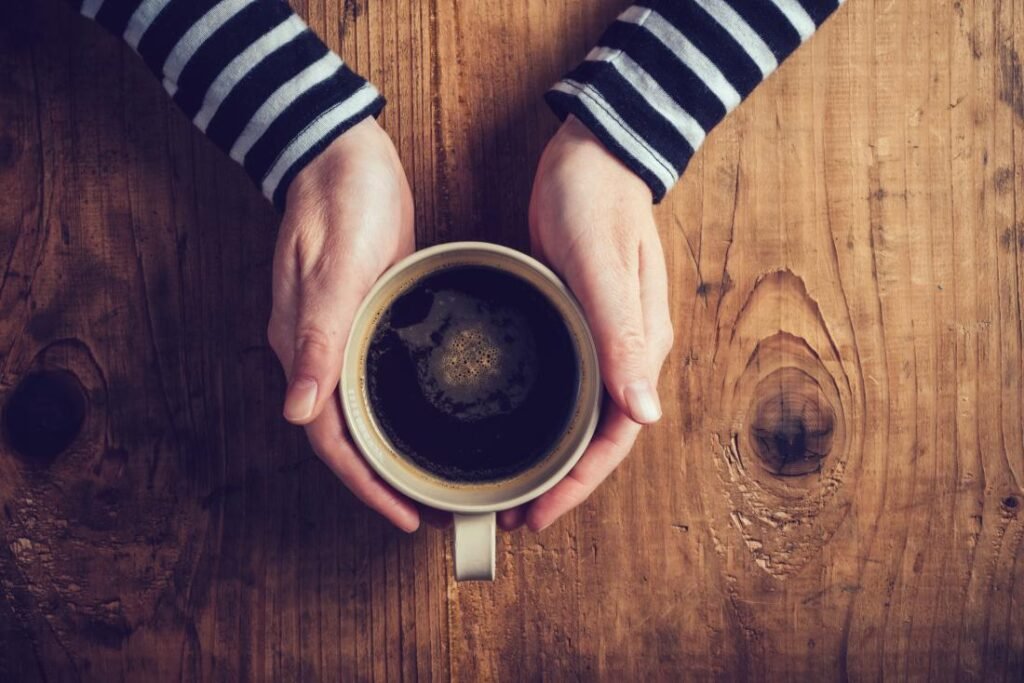
All right, number three: having this idea that you’re getting all your hydration from other fluids like coffee, tea, maybe alcohol, which completely dehydrates you, soda, which is completely dehydrating. And yes, there are certain people out there that think that soda hydrates you. It doesn’t.
So when you’re drinking like coffee and tea, realize that both of those have a mild diuretic effect. So they can be pushing fluid out of your body and not necessarily hydrating you.
And also if you’re on a diuretic on top of that, and you’re pushing all this fluid out of your body, it can make you very dehydrated.
- Relying on beverages like coffee, tea, alcohol, or soda for hydration is a mistake.
- Coffee and tea have diuretic effects, potentially leading to dehydration.
- Soda does not hydrate and can contribute to dehydration.
Factors Affecting Hydration Needs
And so what you drink is a factor to look at, and there’s other variables to look at as well. What is the temperature outside?
If you’re living in an environment that’s very hot, you’re probably going to need more fluid. If you’re exercising and you’re sweating a lot, you’re going to need a lot of fluids. If you have a condition where you’re not exercising but you sweat a lot, that’s another factor.
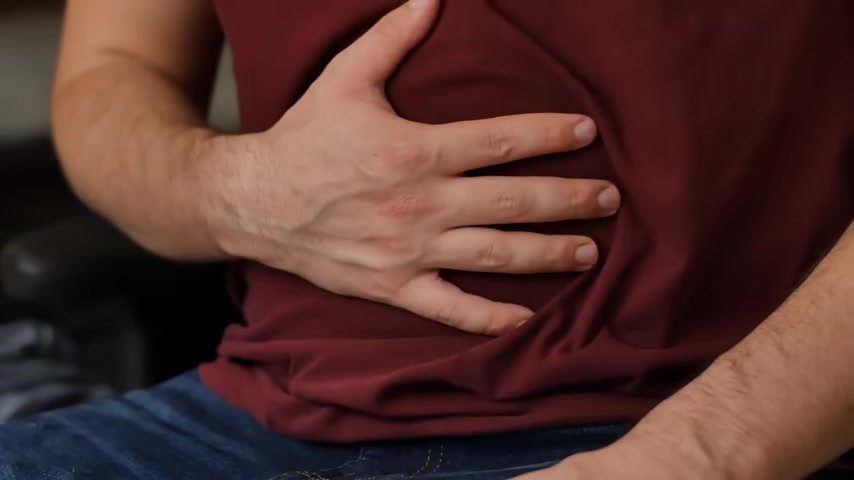
If you’re experiencing diarrhea or vomiting, both of those conditions can very quickly dehydrate you.
- Environmental temperature, exercise intensity, and sweating levels significantly impact hydration needs.
- Hot weather, strenuous exercise, and medical conditions causing excessive sweating increase fluid requirements.
- Diarrhea and vomiting can lead to rapid dehydration and require increased fluid intake.
Drinking While Eating: Impact on Digestion
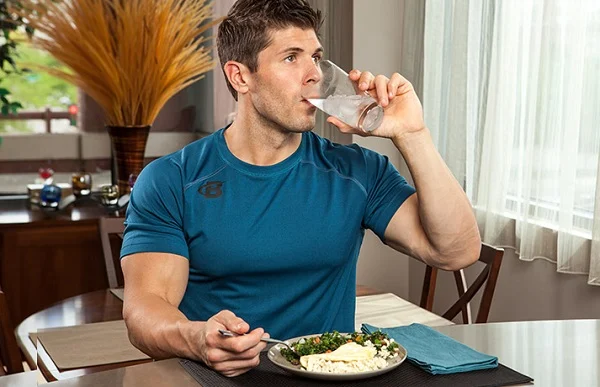
All right, number four: drinking a good amount of water when you’re eating that can dilute your gastric juices like hydrochloric acid.
And if you already have a weakness within this area, you don’t have enough stomach acid, or it’s not acidic enough, which is very common, especially if you’re over the age of 45, drinking more water with your meals will dilute your ability to digest, especially protein, and you may end up with GERD or acid reflux.
So I always recommend if you’re going to drink with a meal, just don’t overdo it. It’s better if you drink maybe a half-hour before the meal or a half-hour later.
But I don’t want to make this a really big point. If you are thirsty in a meal, go ahead and drink. But the point is if you’re already deficient in the gastric juices, drinking more water will weaken your stomach’s ability to digest protein.
- Drinking excessive amounts of water during meals can dilute stomach acid.
- Insufficient stomach acid can impair digestion, particularly protein digestion.
- Individuals with low stomach acid may experience GERD or acid reflux if they drink too much water while eating.
Drinking Cold Water: Vagus Nerve Considerations
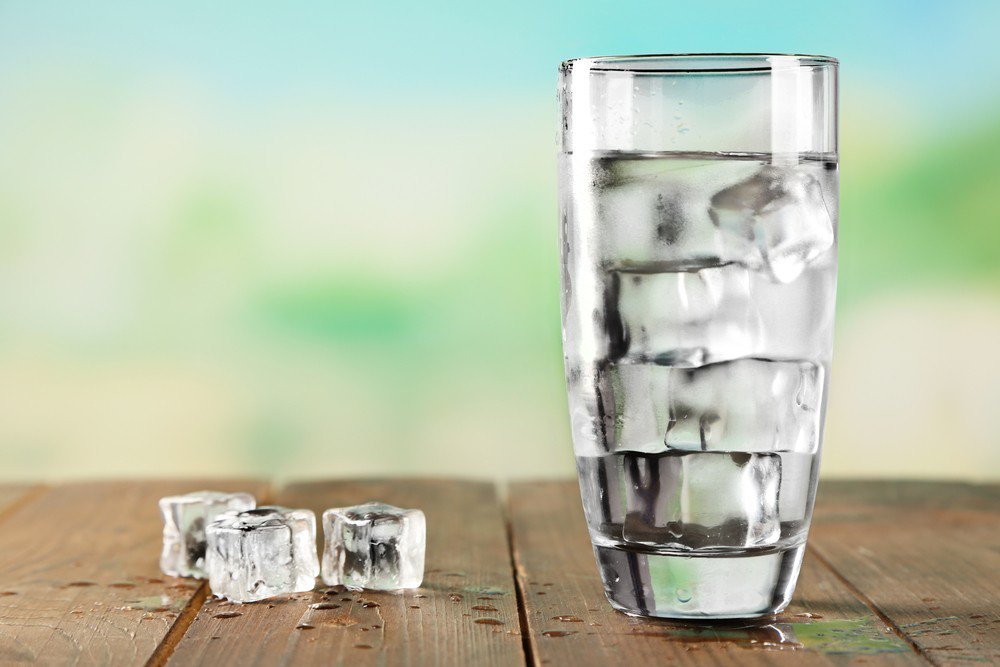
All right, number five: drinking extremely cold water in large amounts can inhibit the vagus nerve. Now, this is a minor point, this is not a big point.
Some people can drink a lot of cold water, no problem. But if your digestive system is already weak, let’s say you have you get a lot of bloating or you have a lot of digestive issues, and you drink a good amount of ice-cold water, that can slow down the vagus nerve, which is responsible for digestion.
- Consuming large quantities of extremely cold water may temporarily inhibit the vagus nerve.
- The vagus nerve plays a role in digestion.
- Individuals with pre-existing digestive issues may experience discomfort or slowed digestion after drinking a significant amount of ice-cold water.
Drinking Tap Water: Potential Contaminants
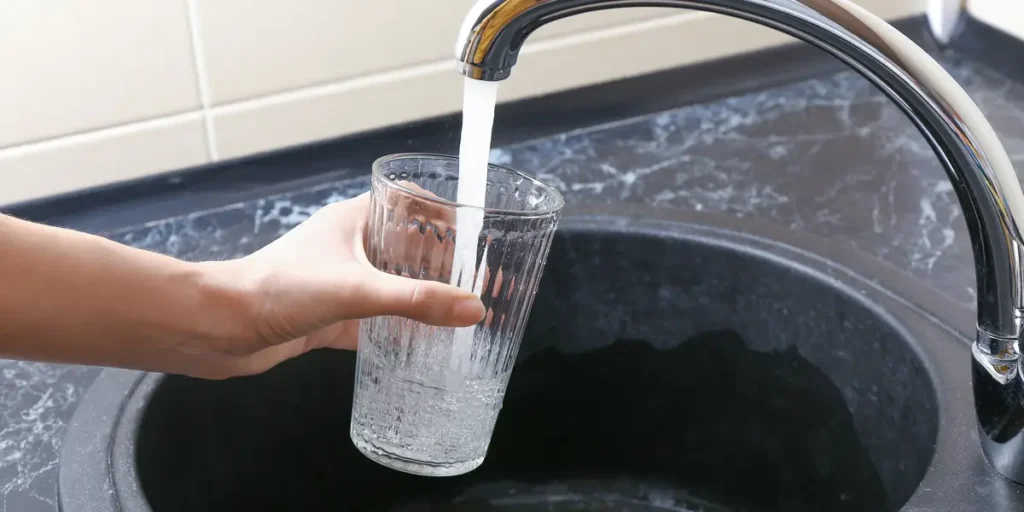
All right, and number six: drinking tap water. Now some people will say that drinking tap water is safe, but they’re finding all sorts of things in tap water that are not safe.
Not to mention the normal chlorine and fluoride, but also glyphosate, which is the chemical Roundup Ready that is involved with the GMO foods. You have chemicals that affect fertility, hormones, your brain.
You have chemicals that are carcinogenic. And on top of that, there’s a lot of nano-size particles, very small particles of plastics that you’re getting when you’re drinking tap water. So just get a good filter to filter that out.
- Tap water can contain potentially harmful contaminants.
- Common tap water contaminants include chlorine, fluoride, glyphosate, and microplastics.
- These contaminants may pose risks to fertility, hormone balance, brain health, and increase cancer risk.
- Using a good water filter is recommended to remove potential contaminants from tap water.
Summary
6 common mistakes people make while drinking water:
1. Drinking too much water Drink water when you’re thirsty. Drinking too much water can even cause dehydration. If you are prone to kidney stones, drink at least 2.5 liters of fluid a day. Different factors determine how much water you need, but it’s important not to have too much.
- Drinking water too quickly When you drink water too fast, it can create swelling.
- Drinking the wrong fluids Not all fluids hydrate you. Some can even dehydrate you.
- Drinking while eating This can weaken your ability to digest foods, especially protein, and could lead to GERD or acid reflux. If you drink while eating, don’t overdo it. It may be better to have something to drink 30 minutes before or after a meal.
- Drinking cold water Drinking large amounts of very cold water may inhibit the vagus nerve, which is responsible for digestion. This may be more of an issue for those who already have digestive issues.
- Drinking tap water There are chemicals and very small plastics in the tap water that are not safe for the body. Get a good water filter to filter that out.
DATA
https://pubmed.ncbi.nlm.nih.gov/19501780
https://www.frontiersin.org/journals/human-neuroscience/articles/10.3389/fnhum.2013.00363/full#h4
FAQ
What are the mistakes people make while drinking water?
Drinking water is essential for our bodies, but many of us make mistakes that can negate its benefits. Some common mistakes people make while drinking water include:
- Not drinking enough water throughout the day
- Drinking water only when thirsty, rather than making it a habit
- Consuming water with meals, which can dilute digestive enzymes
- Drinking cold water, which can shock the system
- Not monitoring water quality, leading to consumption of contaminated water
- Adding flavorings or sweeteners to water, which can increase calorie intake
To avoid these mistakes, make sure to drink water regularly throughout the day, and opt for room temperature or warm water. Also, choose a reliable water source and avoid adding unnecessary additives.
What not to do when drinking water?
When it comes to drinking water, there are several things to avoid:
- Don’t drink water during meals: Drinking water during meals can dilute digestive enzymes and lead to poor nutrient absorption.
- Avoid drinking cold water: Cold water can shock the system and lead to digestive issues.
- Don’t overdo it: Drinking too much water can lead to water poisoning, so make sure to drink in moderation.
- Don’t ignore water quality: Make sure to choose a reliable water source to avoid consuming contaminated water.
- Don’t add unnecessary additives: Avoid adding flavorings or sweeteners to water, as they can increase calorie intake.
By avoiding these common mistakes, you can ensure that you’re getting the most out of your water intake.
What is the golden rule of drinking water?
The golden rule of drinking water is to drink at least 8-10 glasses of water per day. However, this can vary depending on factors such as age, sex, weight, and activity level. A more accurate rule of thumb is to drink half an ounce of water per pound of body weight. For example, if you weigh 150 pounds, aim to drink at least 75 ounces of water per day.
Why we should drink 6 to 8 glasses of water?
Drinking 6-8 glasses of water per day is essential for our bodies. Here are some reasons why:
- Boosts energy: Even mild dehydration can cause fatigue and decreased productivity.
- Promotes weight loss: Drinking water can help suppress appetite and increase metabolism.
- Flushes toxins: Water helps to flush out toxins and waste products from the body.
- Improves skin health: Drinking water can help to hydrate the skin and reduce the appearance of fine lines and wrinkles.
- Supports kidney function: Drinking enough water helps to support kidney function and reduce the risk of kidney stones.
By drinking 6-8 glasses of water per day, you can experience these benefits and more.
How long does it take to see effects of drinking more water?
The effects of drinking more water can be seen in as little as a few days. Here’s what you can expect:
- Within 24-48 hours: You may notice an increase in energy levels and a decrease in fatigue.
- Within 1-2 weeks: You may notice improvements in skin health, such as reduced acne and improved hydration.
- Within 2-4 weeks: You may notice improvements in digestive health, such as reduced bloating and improved bowel movements.
- Within 1-3 months: You may notice improvements in weight loss and overall health.
Remember that individual results may vary, and it’s essential to combine drinking water with a healthy diet and lifestyle.
10 signs you don’t drink enough water
Here are 10 signs that you may not be drinking enough water:
- Fatigue and weakness: Feeling tired and weak can be a sign of dehydration.
- Dry skin: Dry, tight skin can be a sign of dehydration.
- Headaches: Dehydration can cause headaches and migraines.
- Dark urine: If your urine is dark yellow or amber-colored, it may be a sign that you’re not drinking enough water.
- Constipation: Dehydration can cause constipation and bowel irregularity.
- Bad breath: Dehydration can cause bad breath and dry mouth.
- Muscle cramps: Dehydration can cause muscle cramps and spasms.
- Joint pain: Dehydration can cause joint pain and stiffness.
- Dizziness and lightheadedness: Dehydration can cause dizziness and lightheadedness.
- Reduced cognitive function: Dehydration can cause decreased focus and concentration.
If you experience any of these symptoms, make sure to drink more water throughout the day.
Before and after drinking water for 30 days
Drinking water for 30 days can have a significant impact on your health and well-being. Here are some before and after benefits you can expect:
Before:
- Fatigue and weakness
- Dry skin
- Headaches
- Constipation
- Bad breath
- Muscle cramps
- Joint pain
- Dizziness and lightheadedness
- Reduced cognitive function
After:
- Increased energy levels
- Improved skin health
- Reduced headaches and migraines
- Regular bowel movements
- Fresh breath
- Reduced muscle cramps and spasms
- Improved joint health
- Improved cognitive function
- Weight loss
Remember that individual results may vary, and it’s essential to combine drinking water with a healthy diet and lifestyle.
When you start drinking more water do you gain weight?
Drinking more water can actually help with weight loss, rather than weight gain. Here’s why:
- Suppresses appetite: Drinking water can help to suppress appetite and reduce calorie intake.
- Boosts metabolism: Drinking water can help to boost metabolism and increase fat burning.
- Flushes toxins: Drinking water can help to flush out toxins and waste products from the body.
- Improves digestion: Drinking water can help to improve digestion and reduce bloating.
However, it’s essential to note that drinking too much water can lead to weight gain. Make sure to drink water in moderation and listen to your body’s needs.
What happens when you start drinking enough water?
When you start drinking enough water, you can expect to experience a range of benefits, including:
- Increased energy levels: Drinking enough water can help to boost energy levels and reduce fatigue.
- Improved skin health: Drinking enough water can help to hydrate the skin and reduce the appearance of fine lines and wrinkles.
- Improved digestive health: Drinking enough water can help to improve digestion and reduce bloating.
- Weight loss: Drinking enough water can help to suppress appetite and increase metabolism.
- Improved cognitive function: Drinking enough water can help to improve focus and concentration.
Remember that individual results may vary, and it’s essential to combine drinking water with a healthy diet and lifestyle.

